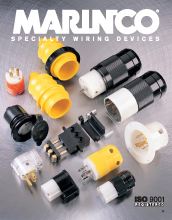A Technical-Industrial Copyeditor improves your B2B Marketing 7 Ways
Has your company spent a lot of time on brochures and web pages, but you’re still not satisfied with the text?
Or, are you a marketing communicator who likes to “take a crack” at writing and then see it further improved in the hands of a skilled and experienced copywriter?
In-house marketing departments can be so close to their products that it compromises their ability to communicate about them. Sometimes faulty assumptions are made about the target audience’s knowledge. Or in-house copy accidentally skips over some of the logical steps taken by prospects during the buying process.
When written by engineers, in-house industrial copy can be loaded with jargon, overly reliant on long lists of features and benefits, or just plain hard to read. Organization can be another challenge. Graphics may be underutilized, particularly for intangible or complex concepts. And important corporate themes may be missing.
1) A copyeditor brings fresh eyes. You live and breathe your products all the time. By contrast, copyeditors work for multiple clients. Even when working furiously on a project with a killer deadline, the review process (that is, multiple drafts) has built-in breaks for copyeditors. They go and think about other products and industries while their drafts are being reviewed. As a result, copyeditors return to each project feeling rested and clearheaded.
2) A copyeditor assumes nothing. Your customers know a lot — after all, they’re engineers and technicians. But no one can be an expert on everything. Their experience in your field can vary greatly from engineer to engineer. A professional industrial copyeditor strikes a fine balance: not talking down to anyone, but also writing for the just-out-of-college engineer, or the engineer who has learned English as a second (or third or fourth) language.
3) A copyeditor goes step-by-step through the business case. What are all of the steps taken in the decision-making and buying process? Who are the influencers, and what are their concerns? Is each point in the business case specific and tangible? Does the copy make specifiers at ease in their justification of their purchase?
The professional industrial copyeditor brings an outside perspective that strengthens the business case for your product.
4) A copyeditor can translate engineerese. Engineers know what their words and acronyms mean. A good copyeditor can make certain everyone else knows what they mean, too. Studies show that readers are more engaged and comprehend better when short words and sentences are used. Short can also be technically accurate. Not to mention persuasive.
5) A copyeditor brings organization. A writer who isn’t organized for a 24-page technical-industrial brochure is dead meat. Good copywriters synthesize a tremendous amount of background information into a logical, step-by-step structure. And the structure, at its core, is the development of the value proposition. Well-written paragraphs are for naught if they don’t transition smoothly into one another, methodically strengthening the business case for the product’s value proposition.
Use industrial copyeditors as a tool to bring organization and clarity to your projects, especially if under tight deadlines.
6) A copyeditor supports corporate themes. Company divisions are sometimes so focused on their new product introductions that they can overlook corporate themes. Or, corporate themes are clumsily tacked on as an afterthought.
A good industrial copyeditor honors and uses established company themes, as well as all corporate identity and trademark guidelines. This discipline is deeply instilled in experienced copywriters who want to fully leverage the power of consistent corporate branding and identity.
7) A copyeditor thinks in pictures. Their words should be painting pictures in the prospect's mind. For a particularly complicated technical concept or process, the copyeditor should offer up one or more ideas as how to better illustrate the concept, either through metaphors or actual graphics. Easy-to-digest graphics — line drawings, photos, Flash videos, and charts — can forcefully drive home points made in the copy.
Conversely, engineers who write copy tend to be very literal. They may not have developed the creativity techniques for brainstorming ideas for graphics that quickly express intangible concepts or processes.
Good copyeditors always think in images. They are a constant source of ideas for graphics.
Do you have some marketing text that you think could be improved by an experienced technical-industrial copyeditor? Contact William Blake for a freelance copyediting quote and turnaround time.
